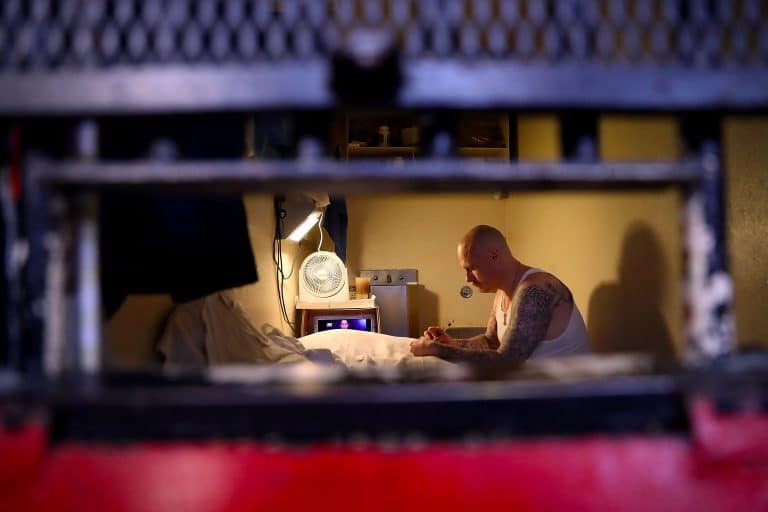The Value of Quick, Deep Conversations With Strangers
The catchy phrase, “neurons that fire together wire together,” relates a simplified version of Donald Hebb’s rule of cell assembly. Hebb’s Rule explains the way that brain cells strengthen their connections to form neural networks. If one cell activates with enough frequency while in close proximity to another cell, causing that other cell to activate, the two cells will establish a more efficient mode of activation transfer, or connection. Even more simply, if brain cells talk (really, really quickly) to each other frequently, they establish a more understanding relationship. Lots of relationships like these come together to build communicative networks.
Hebb’s rule came to mind as I sat in the backseat of a Lyft the other morning. My driver, Hashim, was telling me about the joy he found in his studies of orthopedics and prosthetics. Hashim had only moved to the United States ten months prior to our conversation. Given both of our busy lives, I doubt we would ever have met, had I not used a rideshare app to commute that day. In a mere eleven minutes, Hashim inspired me, revitalizing my hope that meaningful connection is still possible in our fast-paced world.
When he was still living in Kempton Park, South Africa, Hashim drove his car off a cliff. Thankfully, he was not hurt in the accident. His friend, however, who’d been riding in the passenger seat, was acutely injured. His friend was taken to Germany for medical care, where doctors amputated one of his legs, and fitted him with a prosthetic limb.
When I was only five years old, my best friend accidentally poked a mechanical pencil through my right eye. Our families could not bring themselves to forgive each other after the accident, and I lost my friend.
I wondered, had Hashim maintained a relationship with his friend after the accident? “We are friends,” he told me, “though he lives in South Africa, and I live here, in the U.S.”
When his friend returned from Germany, Hashim was struck by how well he could walk with the help of his prosthetic leg, and decided right then to study orthopedics and prosthetics. Hashim explained, “When you feel the pain, you can help so many people… you have better intuition.”
I tried to imagine what it would take to reunite with a friend who had been so hurt under one’s own watch, but was too embarrassed to ask him about it. Who am I to question this stranger’s courage?
One of the drawbacks of connecting with people so quickly is that it’s hard to get past people’s outer identities. Pauses seem even longer in short conversations.
Hashim told me that while his friend was receiving treatment in Germany, he couldn’t eat. “I did not sleep at night or during the day,” he said. I finally understood what Hashim meant when he said he felt his friend’s suffering: It reunited him with his friend.
Hashim’s resilience made an impression on me. Not only did he survive, but he created a sense of unity in his life — he made meaning out of a senseless accident. Hashim was a good driver, and I felt at ease in his calm care.
Hashim asked me what I was studying. Almost always, my answer to this question wanders, lost in my ever-present tangential passions. “I’m also fascinated by reef fish! I also find football interesting!” I suppose I want to show people how relatable I am. Sometimes, I ignore my unique interests in order to focus solely on my common ground with others.
As Hashim took our exit off the highway, I knew our conversation would end soon. I surprised myself by relating my life’s work succinctly, using the framework Hashim had given to me through his story. “I have seen my loved ones suffer from mental illness and have also suffered from mental illness, so I want to study the workings of the mind.” I felt that I had lived through the most difficult times in my life to develop empathy for people living with mental illness.
Not missing a beat, Hashim told me he thought that psychology and psychiatry were “beautiful” — a term I had never once heard to describe these fields. I thought back to the smart boys who diminished psychology’s worth, calling it a pseudoscience.
Hashim’s words felt like permission to see myself in him. Like poetry, they just made sense. I felt better about my prospects for contributing something useful to humanity and found friendly company in Hashim. How could I communicate all of this to him? “Thank you,” I said, “that means a lot.”
We returned to small talk as Hashim reached my stop. I felt refreshed, stronger, as we discussed what a privilege it is to know more than one language. “That way, you can make so many friends,” Hashim said. For the record, he speaks four languages and understands almost ten. The man must be popular!
After parking, Hashim turned over his right shoulder towards the passenger side of the backseat where I was seated. We both said we hoped to run into each other again soon.
I was changed by my interaction with Hashim. Meeting him renewed my confidence in empathy and the value of quick, deep conversations with strangers. Although we have become very aware of the people around us through social media, and often interact with strangers there, we are all still so lonely. Perhaps by pursuing encounters with strangers — with the knowledge that we are potentially creating deep friendships — these connections will inspire a new kind of social network, not digital, but powerful enough to unite our fast, complex world.


Share your reflection